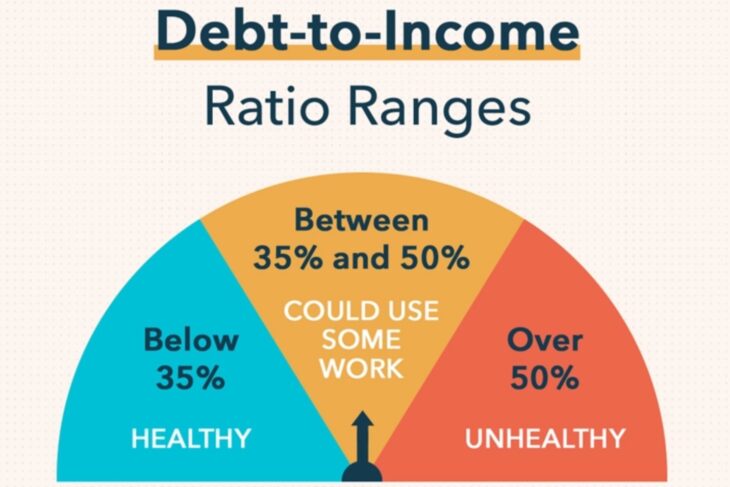For many homeowners, refinancing is an effective tool for gaining access to lower mortgage payments and other benefits. But refinancing might not be right for everyone, especially if you have a poor credit score or complicated financial situation.
It’s important to know what to expect before you refinance, so follow these tips to make sure you understand all the steps of the process and have realistic expectations of what refinancing might provide.
Before we proceed to give you the tips, let first of all understand what exactly refinancing is.
What Really is Refinancing?
Refinancing is the process of getting your existing mortgage or home loan to a new, lower interest rate.
It is one of the most popular ways people reduce their debts when available funds seem insufficient to meet their payments.
If the interest rate on your existing mortgage or home loan is more than what is offered by credit cards or other lenders, refinancing may be best for you. This is why it is important to understand how refinancing works before beginning your search.

Source: Pinterest.com
8 Tips for Homeowners Who Want to Refinance
- Know Your Credit Score: Before you can refinance your current loan, you must know your credit score. Your credit score is a number that appears on your credit report. It represents the risk that your lender takes on when you borrow money. The higher your score, the less interest you will pay on your loans and other payments will be handled more quickly by lenders. When you have a high credit score, it becomes harder for you to be rejected for a new loan because lenders have more confidence in your ability to pay off your existing debt.
- Know Your Taxes: When you refinance your existing mortgage, be sure to read and understand the tax implications of each step of the process. In particular, know the impact of capital gains and tax-free bonds on your net worth before signing anything away for fear of losing access to funds later on. You may also wish to consult with a tax professional or other competent person before beginning any tax planning activity — particularly if refinance offers are being made available.
- The Costs of Refinancing: It’s important to know the costs of refinancing before you do so. Refinancing will help you eliminate debts faster, but it also carries the risk of bringing new debt onto your balance sheet. This is why you should be sure to compare rates before going forward. Kiwis can head over to compare refinancing rates with mortgages.co.nz/mortgage-rates. If you decide to refinance without knowing the costs, it could be an investment that pays off in greater profits later but at the risk of blowing your new savings on previously existing debt.

Source: mint.intuit.com
- Know Your Debt-to-Income Ratio: When you buy a house, the cost is not the only factor that counts. Also important is how much debt you have. The more debt you have, the harder it is to pay off the balance when purchased. This is why it is important to identify your debt-to-income ratio—or how much debt you have relative to your disposable income—before refinancing. This ratio serves as an important signal to lenders that you can manage your expenses responsibly and are likely to be at good risk of defaulting on payments in the future.
- Understand Your Equity: When looking to refinance your loan, or if you already have one, it’s important to know your equity. Equity means the amount of money remaining in your loan after all payments have been made and if you pay off the loan in full before the due date. With equity, you can focus solely on paying down your debt instead of worrying about how much more you might be owing on the new loan.
- Be sure refinancing is cheaper for you: Refinancing your house can be a big step, but it is not something you should do lightly. It’s important to understand all the pros and cons of refinancing before you sign on the dotted line with a lender. Do you know how to calculate savings when refinancing a mortgage? There is a lot of hype about refinancing and many homeowners want to know if they should refinance. When refinancing, there could be additional fees that make it not worthwhile. Be sure to discover if your refinancing will be cheaper.

Source: thebalance.com
- Shop around for a mortgage lender: When you decide that it’s time to refinance your home, there are two important things you can do to make sure you get the most out of the deal. The first is to shop around for a good mortgage lender and the second is to go into refinancing with your eyes wide open. Before refinancing, it’s important to understand how to shop for a mortgage lender. You don’t just want the first offer you get on the internet. This would be like buying a television without shopping around first. What if the price depends on the store or brand? Sometimes, it comes down to how much of a hassle you’re willing to put yourself through on your refinance process.
- Ask about additional costs: Homeowners make mistakes when refinancing a home loan by not asking about additional costs. These costs can add up to thousands. There are usually costs associated with the refinancing process you might not be aware of, like: appraisal fees, title insurance and loan origination fees. So before you refinance, make sure you know about these additional costs and whether they fit into your savings plan. Don’t rush into refinancing your home loan without knowing what you could get hit with. Asking about additional costs could prevent all sorts of potentially pricey surprises.

Source: fitsmallbusiness.com
Conclusion
Using these tips and tricks can make your refinancing experience a lot more pleasant. It is important to understand your refinance options, keep in touch with your lender, and know your financial situation.
Take advantage of these refinancing tips when getting the process started and prepare for a smooth sailing experience.
